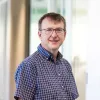Continental, Dentsply Implants, Newtec and Provan are the first factories of the future in this country. For a number of years now, these technology companies have been investing in state-of-the-art production technology, digitisation, social innovation and ecology, and are now among the top manufacturers in this area. There is no doubt that they deserved to be presented with the Factory of the Future award on 3 February this year. One by one, we now put these remarkable companies under the spotlight.
Four companies obtained the status of 'Factory of the Future' in the assessment process. With locations in Genk and Bilzen, Provan is a metal processing company carrying out manual and automatic welding, laser and sheet processing, as well as section processing and assembly for customers from various industrial sectors. It focuses on quick response manufacturing (QRM) in everything it does. With the introduction of a new operational planning system, Provan has put a lot of effort into the digital factory concept. The production process was virtually fully digitised in order to support QRM.
Quick response manufacturing
The working philosophy at Provan is based on QRM. The aim is to shorten the lead times within the organisation and to work with the lowest possible stock levels, thereby resulting in a rapid flow of products through the factories. The production lead times are shortened thanks to working with smaller batches. For their customers it means that they can respond quickly to changing market demands, hold lower stock levels and make product modifications that can be introduced to the market within a short space of time.
The results of this strategy are impressive: not only are the lead times for some of the most important products substantially shortened, with the added value of Provan's production process being tripled over the last five years, but the ecological impact has also been considerably reduced.
Committed employees and partner network
Quick Response Manufacturing is just one of the factors that can explain the success and substantial growth at Provan. The employees have also played an essential role. The company enjoys a high degree of loyalty. The introduction of QRM has made the employees fully committed throughout the entire process. Commitment is one of the greatest motivating factors. Moreover, the system stimulates the employees to become self-sufficient and they participate in training courses and benefit from cross-training in the workshops, which makes them extremely versatile.
This Limburg company strongly believes in added value gained from networking with other companies.
Provan focuses on its core activities, but simultaneously wants to offer its customers comprehensive packages. In order to achieve this, the company has built a network containing other companies in the market who can add extra value to the comprehensive packages that Provan wants to offer its customers. The creation of this partnership of suppliers has resulted in improved levels of cohesion throughout the value chain. Of course, all these partners must apply the same philosophy and work in the same way that Provan has been doing for the benefit of its customers.
Forward-looking vision
The company is striving for excellence in all areas: including QRM, HR, supply chain and operations, so that it is always one step ahead of its competitors and also the market.
Provan envisages further growth over the coming years from increased exports. In the meantime it is continuing to invest in people and technology. The latest welding robot was introduced in October 2014 and further investments will be made in state-of-the-art machinery. The company also intends to increase the number of people it employs. The plan is to increase the workforce in 2015 from the current 65 to 85 employees. Therefore it goes without saying that further investment must also be made here, so that the properly trained workforce can continue to distinguish itself in the market.
Within the scope of Made Different, both Sirris and Agoria are currently providing support for another 140 companies in their transformation towards becoming Factories of the Future. These companies are currently undergoing one or more actual transformations. The companies operate in a wide range of sectors: technology, foodstuffs, textiles, paper, pharmaceuticals, transport, chemicals, leather, furniture, medical, construction, etc. In total they encompass both SMEs (66%) and large companies (34%) spread over the Flemish provinces. Sirris and Agoria have estimated that by 2018 approximately 50 companies will have acquired 'Factory of the Future' status. Over the long-term they are looking at around 500 companies.



